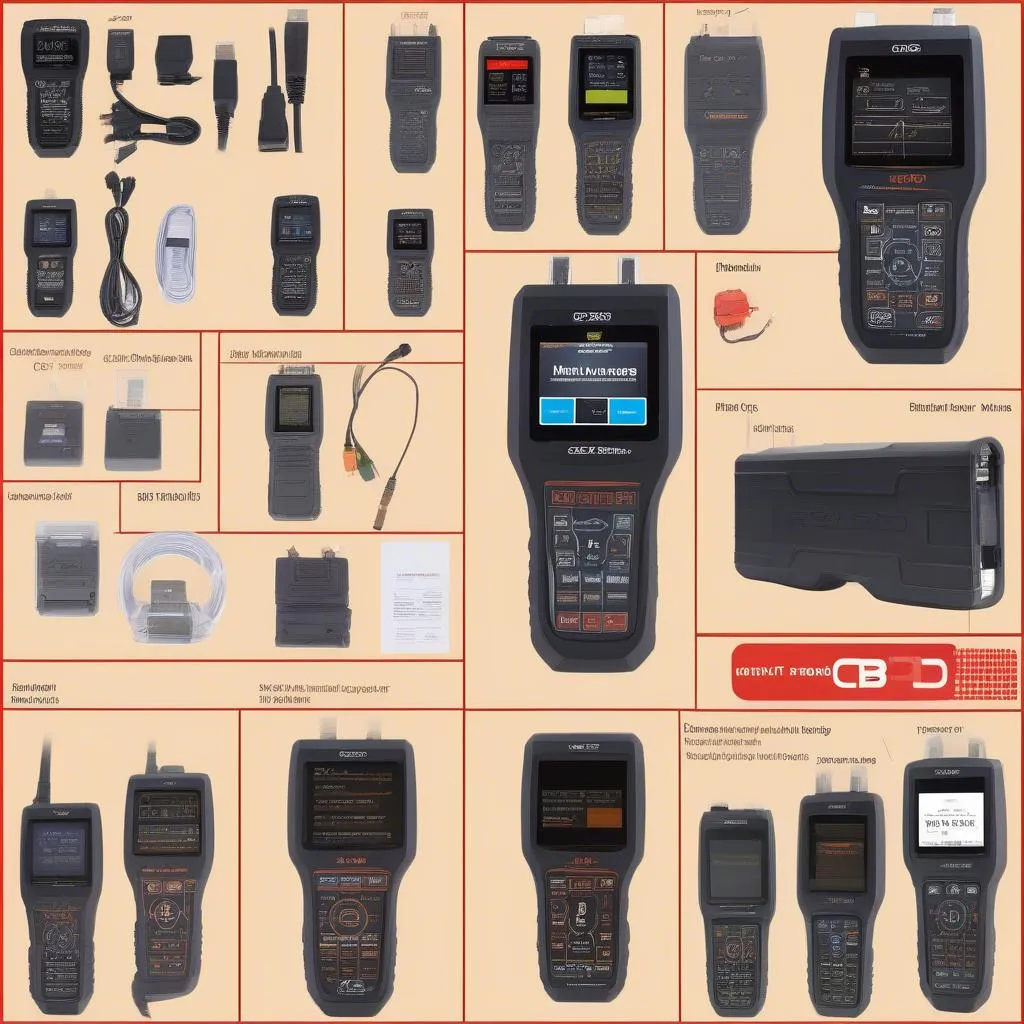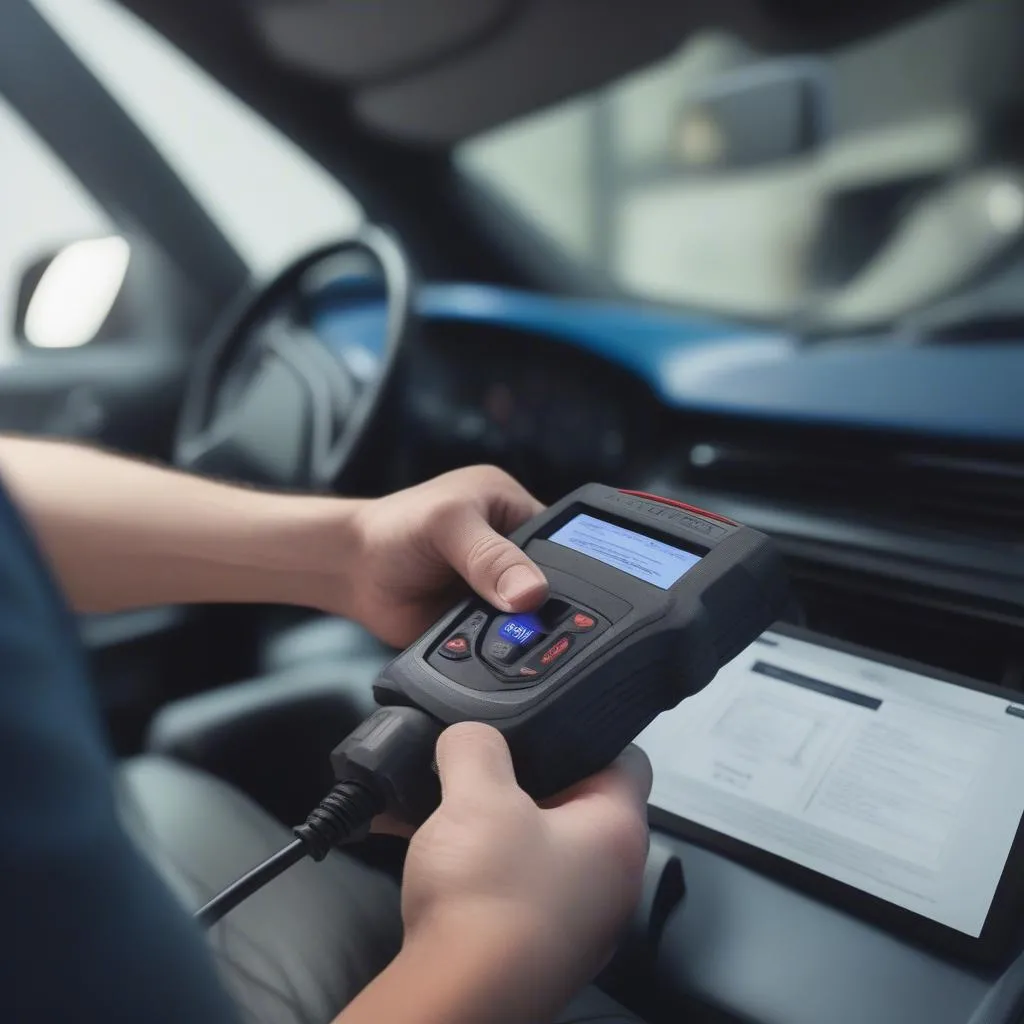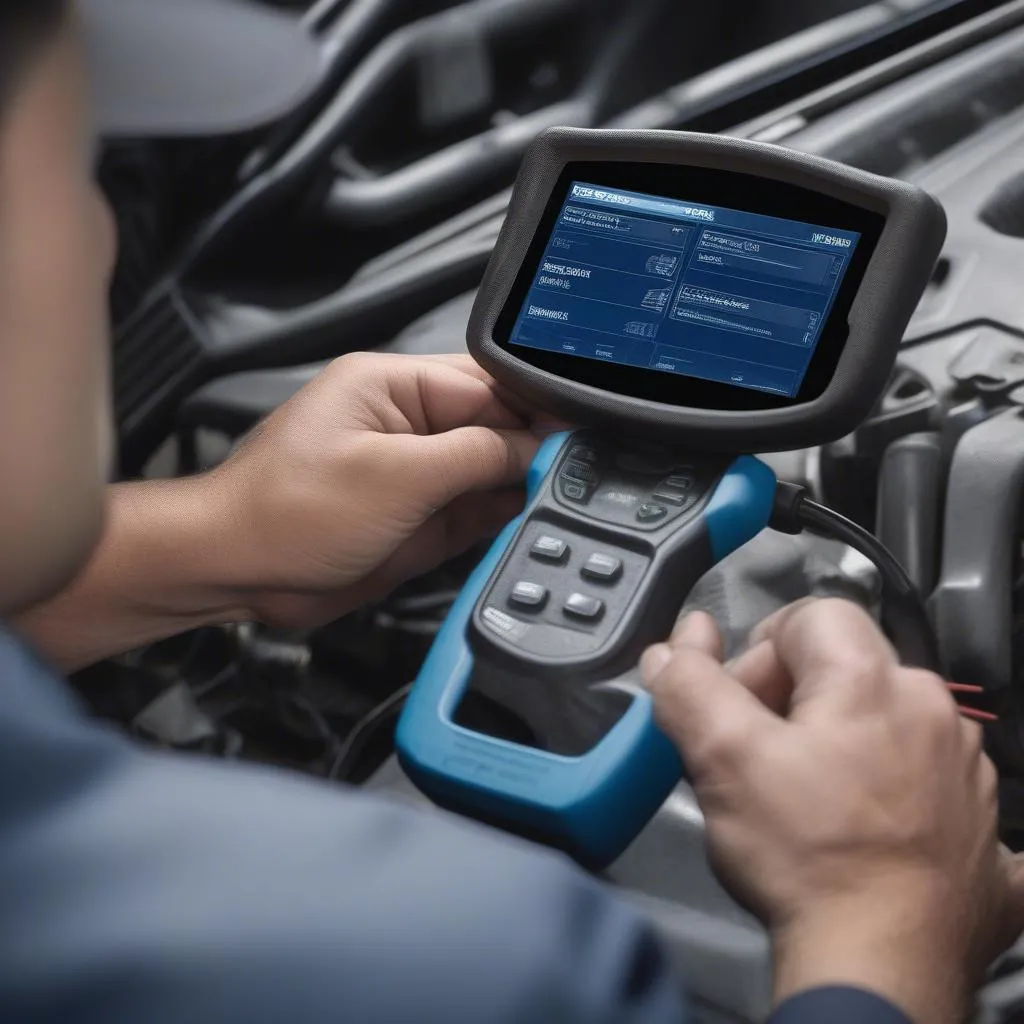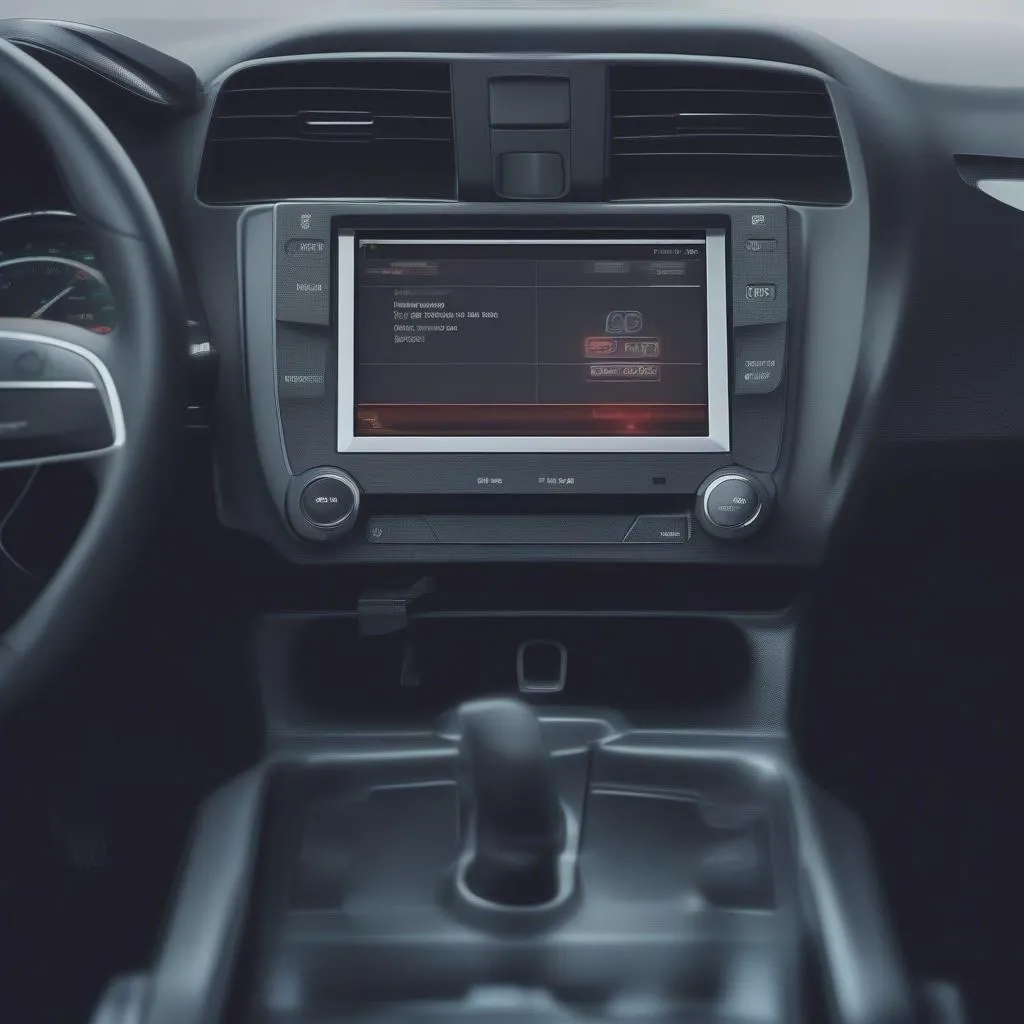Imagine you’re driving your car, enjoying the smooth ride and the open road, when suddenly, the “check engine” light pops up. You might wonder, “What’s wrong with my car? What caused the problem?” This is where an OBD scan tool comes in handy, offering a powerful window into your vehicle’s health and diagnostics.
What is an OBD Scan Tool?
An OBD scan tool is a device that connects to your car’s On-Board Diagnostic (OBD) system to read and interpret diagnostic data. It allows you to access and understand vital information about your vehicle’s performance and potential issues.
Think of it as a translator between your car and you. Imagine the car is speaking a complex language of codes and sensor readings, but the OBD scan tool translates it into a clear and understandable message.
Why is an OBD Scan Tool Important?
From a Mechanic’s Perspective:
Mechanics rely on OBD scan tools to diagnose problems quickly and efficiently. Imagine a mechanic trying to troubleshoot a car with a faulty sensor. By plugging in an OBD scan tool, they can pinpoint the exact sensor causing the issue, saving time and resources.
From a Technical Perspective:
The OBD system itself was a revolutionary innovation in automotive technology, introduced in the United States in 1996. This standardized system allows for seamless communication between different vehicle models and makes it easier to pinpoint specific problems.
From an Economic Perspective:
OBD scan tools can save you money by helping you identify and potentially fix minor issues before they become major problems. Early detection can prevent costly repairs and keep your car running smoothly.
How Does an OBD Scan Tool Work?
An OBD scan tool connects to the OBD port, typically found under the dashboard near the driver’s seat. The tool accesses the OBD system and retrieves data from various sensors and modules within your car.
The tool then interprets this data and displays it in a user-friendly format, usually including:
- Trouble codes: These are alphanumeric codes that indicate specific issues with your car’s systems.
- Sensor readings: These provide live readings from various sensors, such as engine temperature, speed, and fuel level.
- Freeze frame data: This data captures the engine conditions at the moment a fault code was triggered.
- Vehicle information: This can include details like engine size, year, and make.
What Can You Do with an OBD Scan Tool?
Here are some of the key things you can do with an OBD scan tool:
- Diagnose engine problems: Identify the root cause of “check engine” light activation.
- Reset fault codes: Once you’ve fixed a problem, you can clear the stored codes to reset the light.
- Monitor vehicle performance: Keep tabs on important parameters like engine temperature and fuel consumption.
- Read and interpret live data streams: Gain deeper insights into your car’s real-time performance.
- Find potential issues before they cause problems: Identify warning signs of potential problems that might need attention.
Different Types of OBD Scan Tools
There are a variety of OBD scan tools available, each offering different features and functionalities:
- Basic Scan Tools: These are typically budget-friendly options, mainly used to read and clear trouble codes.
- Advanced Scan Tools: These tools provide more comprehensive diagnostics, including live data readings, freeze frame data, and more.
- Professional-Grade Scan Tools: These are often used by mechanics and technicians for specialized diagnostics and programming.
 OBD Scan Tool Options
OBD Scan Tool Options
Who Needs an OBD Scan Tool?
While OBD scan tools are beneficial for all car owners, they can be especially useful for:
- DIY enthusiasts: Those who like to tinker with their cars can use an OBD scan tool to diagnose and fix issues on their own.
- Car enthusiasts: These individuals can use the tool to monitor their vehicle’s performance and make informed decisions about modifications or upgrades.
- Fleet managers: Companies with large fleets of vehicles can use OBD scan tools to track maintenance needs and ensure their vehicles are running efficiently.
Frequently Asked Questions (FAQs)
Q: Can I use an OBD scan tool on any car?
A: Most OBD scan tools are compatible with vehicles manufactured after 1996 in the United States. However, some older vehicles may not have the OBD port, and some newer models may require a more advanced tool.
Q: Can I use an OBD scan tool to diagnose issues with my car’s transmission or ABS system?
A: While some advanced scan tools can diagnose issues with other systems like transmission and ABS, basic OBD scan tools are primarily designed for engine diagnostics.
Q: How often should I use an OBD scan tool?
A: It’s recommended to use an OBD scan tool at least once a year to check for any warning codes or potential issues. You can also use it more frequently if you notice any performance changes or if you’re planning to perform maintenance work on your vehicle.
Q: Do I need a mechanic to use an OBD scan tool?
A: No, OBD scan tools are designed to be user-friendly and can be operated by anyone. However, understanding the codes and data readings may require some technical knowledge.
Conclusion
An OBD scan tool is a valuable tool for car owners, offering insights into your vehicle’s health and diagnostics. Whether you’re a DIY enthusiast, a car enthusiast, or just want to keep your car running smoothly, an OBD scan tool can provide you with the information you need to make informed decisions about your vehicle’s maintenance and repair.
 OBD Scan Tool Benefits
OBD Scan Tool Benefits
If you have any questions or need assistance with OBD scan tools, you can contact our team of automotive experts. We are here to help!
Reach out to us via Whatsapp at +84767531508 for any OBD scan tool queries, software installation, or diagnostic assistance. We offer 24/7 support to ensure your car is always running smoothly.


